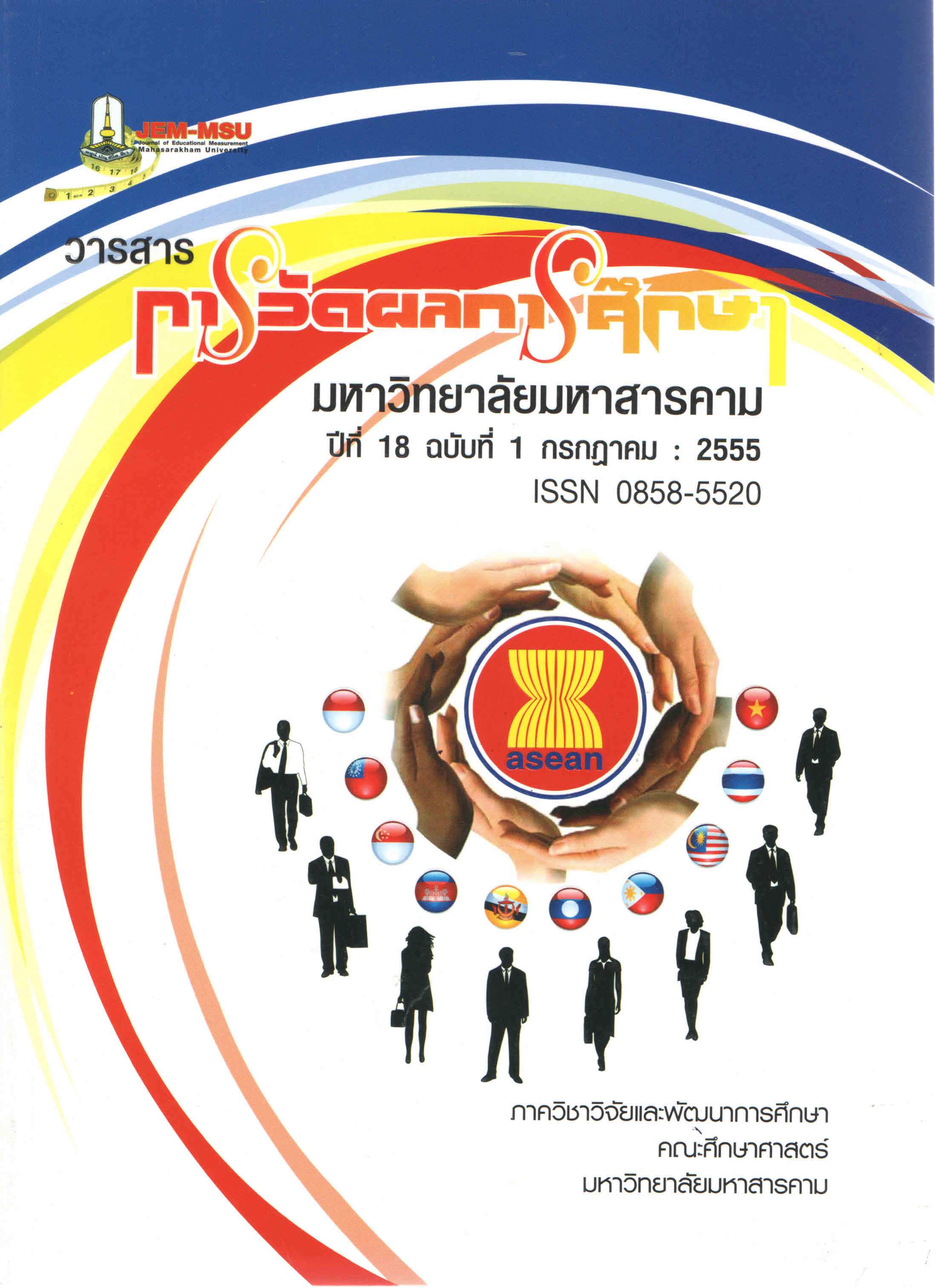A Participatory for Basic Education School Committees in the Development of School Curriculum
Main Article Content
Abstract
A participatory for people in the administration manages to study is crucial to the
development studies of nation. The objectives of the research were to study current
situation, problems and needs of a participatory for basic education school committees
in the development of school curriculum. The sample used in this research consisted of
780 the chairman of basic education school committees of school under the Office of
Ubonratchathani Primary Education Service Area 4 , the Office of Sri Sa Ket Primary
Education Service Area 2 , the Office of Yasothorn Primary Education Service Area 2 and
the Office of Amnatcharean Primary Education Service, obtained using the cluster
random sampling.
The tools used to collect data A questionnaire 20 item and a reliability of 0.97.
Data were analyzed by a computer program for frequency, percentage, standard
deviation, and the interview data were analyzed by content analysis.
The results showed that
The current situation of a participatory for basic education school
committees in the development of school curriculum was at a high level. The problems in
participating in the curriculum development were the committees be omniscient
not enough understanding and declined to express their opinions and provide
recommendations; the school curriculum under study lacked clear targets and goals
and did not satisfy the needs of students and communities; no follow-up and
evaluation procedures were effectively made. The researcher had provided the
following recommendations: the schools were required to prioritize and recognize
the opinions and capacity of the primary educational committees. Besides, the
committees in question should be involved in determining the targets in the school
curriculum development in accordance with the needs of students and communities.
Consistent follow-up and evaluation should be undertaken. The needs made by
the primary educational committees were as follows: there should be more
relations between the schools, the educational committees and the communities; the
training and meeting should be held to equip the committees with a better
understanding of the school curriculum development; the curriculum was
determined to make the student be a better learner, be virtuous, more disciplined,
responsible, proud of their own local culture and to promote local wisdom-based
occupation conversant with daily life.
Article Details
The content and information contained in the published article in the Journal of Educational Measurement Mahasarakham University represent the opinions and responsibilities of the authors directly. The editorial board of the journal is not necessarily in agreement with or responsible for any of the content.
The articles, data, content, images, etc. that have been published in the Journal of Educational Measurement Mahasarakham University are copyrighted by the journal. If any individual or organization wishes to reproduce or perform any actions involving the entirety or any part of the content, they must obtain written permission from the Journal of Educational Measurement Mahasarakham University.


